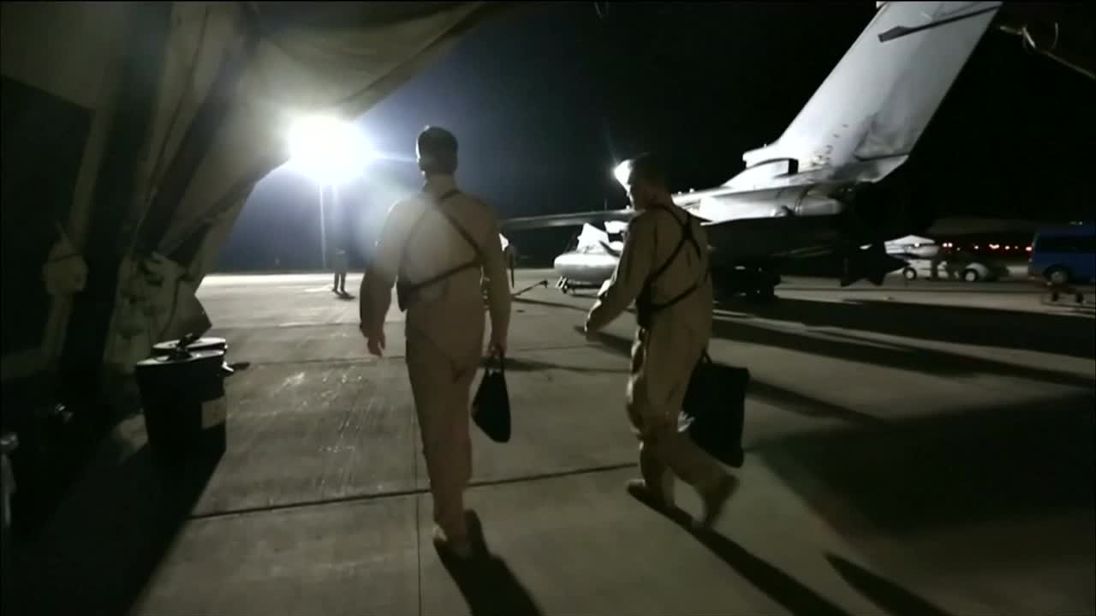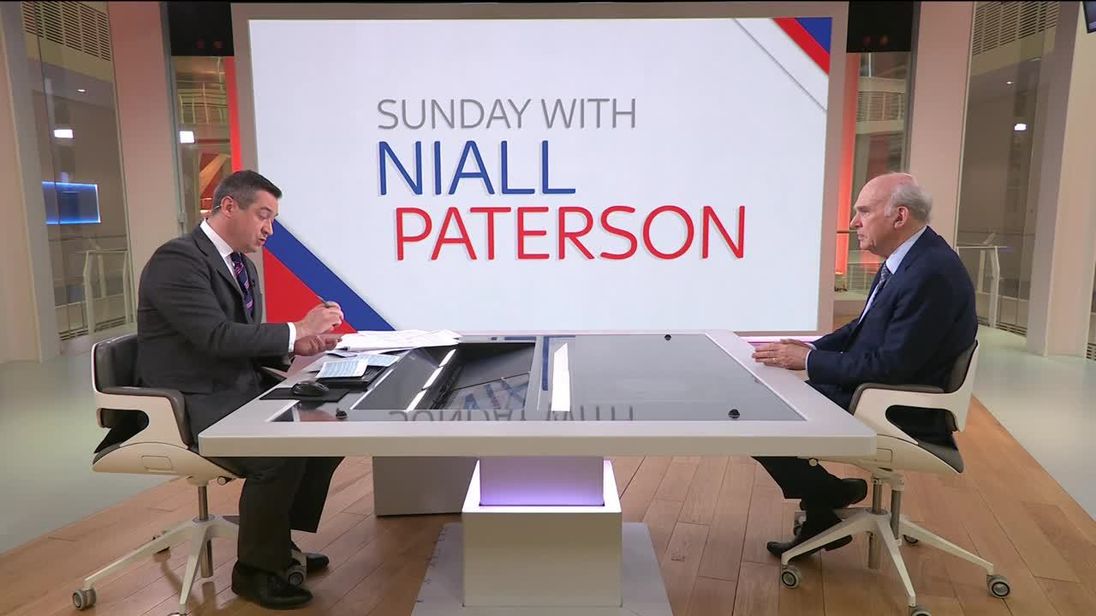Russia was not spoiling for a fight in Syria. Not with the US.
That much was clear in the Kremlin’s muted reaction to an incident back in February, curiously brought back to the fore in recent remarks by CIA Director Mike Pompeo.
“In Syria, now a handful of weeks ago, the Russians met their match. A couple hundred Russians were killed,” he told the Senate Foreign Relations Committee last Thursday.
On 7 February, pro-regime forces backed by Russian mercenaries had launched an attack on a Syrian Democratic Forces headquarters near Deir Ezzor.
The US coalition which backs the SDF responded with air and artillery strikes. The number of reported casualties on the regime side varies wildly.
Suffice to say, there were more than a handful of funerals on Russian soil which the media were not allowed to attend.
:: UK, US and France bid for ceasefire in Syria after airstrikes
The Kremlin eventually admitted that “several dozen” Russians had been killed in Syria, but said they were not uniformed servicemen.
Anything to play down a situation in which Russians and Americans were facing off against each other in direct combat on Syrian soil.
Both sides knew how dangerous that could be. Both sides tried to keep the story quiet.
Fast forward a handful of weeks – a chemical attack in Salisbury and a fresh round of sanctions later.
Russia is angrier but its strategic calculus on Syria has not shifted.
Thanks to Russia’s support, Bashar al Assad has all but finished a gruesome clear-out of the remaining opposition strongholds, broken neighbourhood by broken neighbourhood in city after city.
In Dhouma, the alleged chemical attack last Saturday night which Russia says did not happen may have been the straw which broke the camel’s back – finally forcing the Islamist group Jaish al-Islam into accepting defeat and an evacuation deal.
Off to Idlib province which teems with the vanquished from Syria’s sieges, waiting for the final onslaught from above.
:: Chemical attacks in Syria: A deadly history
Russia’s involvement in Syria’s war has not cost much to date in terms of blood and treasure and it has gained hugely in regional power.
Quite apart from being the best part of suicidal, Russia was not about to risk that through wider conflict with the US.
Bashar al Assad may be Russia’s ally but he is also a liability.
The assumption that he will respond to Russia’s bidding is also not a given.
However it may be perceived in Washington, Paris or London, Russia sees itself as on the defensive vis-a-vis the West.
The Kremlin knows Russia does not have the economic or military capabilities to take on the US and NATO.
:: Boris Johnson defends strikes on ‘barbaric’ Bashar al Assad
It is status which Russia wants. And the limited strike which gave wide berth to Russia’s military bases in Syria gave Moscow the respect it feels it deserves at least militarily.
Russia’s ambassador to the US tweeted cryptically just afterwards that the West had failed to heed Russia’s warnings and that “a pre-designed scenario was being implemented”.
At a press conference that afternoon, foreign minister Sergei Lavrov segued seamlessly from the strike on Syria to a much longer excoriation of the UK’s novichok analysis, claiming that a Swiss laboratory which had tested the samples had found the chemical compound involved was one used by US and NATO countries, not Russia.
The lab in question swiftly put out a tweet declaring it had said nothing of the sort.
Information warfare is a far more comfortable battleground for the Kremlin than the war-torn streets of Syria.
It is cheap and it is a simple way to keep the Russian public on side.
But the more vicious that fight and the more flagrant the Kremlin’s abuse of truth and transparency, the more difficult for Russia to get what it really wants – a seat at the top table worthy of the great power that Russia so desperately wants to be.
From – SkyNews






